Confrontations over Wet’suet’en and Coastal GasLink pipeline
by Andrew Conradi, ofs (OFS JPIC and GCCM Laudato Si’Animator)
Are you confused? Not sure what’s going on? Fed up with blockades? Want to know a bit of background to better understand it all? Wonder what questions are raised by this conflict? Is this related to climate change and hearing the cry of the earth and cry of the poor? If there is a Canadian Catholic position on this, what is it?
Franciscan Voice Canada & the Common Good will try to help clarify these issues!
N.B. We are not experts but have done our best and do hope that in the words of Pierre Teilhard de Chardin, SJ: “Research is the highest form of Adoration” !
| At first sight, actions by and in support of the Wet'suwet'en land defenders are about a pipeline and natural gas. However the problems are much broader and deeper than that. They are as much about Canada and BC governments’ long-term failure to resolve issues around Aboriginal rights, title & reconciliation and also the Wet'suwet'en’s own internal governance problem in not resolving who speaks for them when the Nation’s hereditary chiefs and elected Band Councils disagree. < Photo https://twitter.com/jwints |
Note: this does not completely agree with http://www.wetsuweten.com/office/board-of-directors/ or http://www.wetsuweten.com/culture/chiefs/
The company and government point to support from elected chiefs and Band councils along the pipeline route, many of which have signed benefit-sharing agreements as a way to gain much-needed money for their communities through jobs. The only elected Band council not to sign an agreement with Coastal GasLink is the Hagwilget which is 40% Wet’suwet’en and 60 % Gitxsan and a community within Gitxsan territory.
The elected Band councils, imposed under the Indian Act, have a limited role in governing six reserves totalling 35 square kilometres (click on link to see map). The Wet’suwet’en say their traditional territory is 22,000 square kilometres and the hereditary chiefs, who also have a limited role, are responsible for those territories. Coastal GasLink began negotiations with the hereditary chiefs but when the company did not get agreement switched to the Band councils; but the pipeline does not pass through any reserves. This relates to the question of who has jurisdiction and should be consulted and give consent to the pipeline. This can only be settled by the Wet’suwet’en themselves.
There exist 13 hereditary chief positions but four are vacant so only six are named and they only represent three clans. They don't represent all the clans according to elected Chief Dan George of the Ts'il Kaz Koh First Nation.
Three major questions come to mind:
1. Sovereignty. Since these lands are unconquered and unceded by treaty who has sovereignty and whose law prevails?
2. Delay in resolution of aboriginal title and rights. Why have these questions not been answered before? (N.B. The answers are complicated but have been simplified in the answers here)
3. The church’s position - What is it?
1. Sovereignty. A partial answer to the question on sovereignty was answered by the Supreme Court of Canada in the 1997 Delgamuukw decision and the 2014 Tsilhqot'in decision, both of which recognized Aboriginal title over unceded territories. Aboriginal title is a sui generis, or inherent unique collective right to the use of and jurisdiction over a group’s ancestral territories. [Sui generis is a Latin phrase that here means "of its own kind, in a class by itself", therefore "unique".]
The two cases were partial answers because they failed to resolve details leaving them to negotiations between the parties. Incidentally it was the Gitxsan and Wet’suwet’en hereditary chiefs, not the elected Bands, who brought the Delgamuukw action (Delgamuukw being a Gitxsan hereditary chief’s name). Although First Nations aboriginal title bestows the right to prior consultation and consent over development on their land this does not grant a veto. Negotiations have sometimes been fast if it was in the interests of the Crown or settlers e.g. The Douglas Treaties (1849/50) or the Numbered Treaties (1871-1920). Or slow e.g. the Nisga’a Treaty (2000). Now with the civil disobedience and blockades the Wet’suet’en have upped the ante.
2. Delay in resolution of aboriginal title & rights. The answer to the length of time taken to answer the question leads to examination of the legal concepts going back to Roman times: terra nullius, doctrine of discovery, and history of British and Canadian treaty making with First Nations, cultural genocide and reconciliation, etc, etc.
The Wet’suwet’en remain one of 65 First Nations currently ensnared in the B.C. Treaty Process, negotiating a self-government agreement with the BC Treaty Commission established in 1993. But after 27 years and around $1 billion there are just three treaties. Another 26 First Nations are still negotiating. And 31 nations that originally signed up — including the Wet’suwet’en, represented by the hereditary chiefs — are “not currently negotiating.” For the Wet’suwet’en that seems to be changing as I write (7 March) depending on acceptance by the Wet’suwet’en of an agreement announced 1 March 2020 after a meeting of the (Canada) Minister for Crown-Indigenous relations, Carolyn Bennett and (BC) Minister of Indigenous Relations and Reconciliation, Scott Fraser and Wet'suwet'en hereditary chiefs. In the words of Carolyn Bennett, “we have agreed as ministers that we will come back to sign [it] if it is agreed upon by the Nation." Details will not be revealed until then but it appears to be about Indigenous rights and land titles. Disagreement remains over the natural gas pipeline going through traditional territory which the hereditary chiefs continued to oppose. However presently as I write, protest rail blockades have been removed across Canada. Mohawks removed the Tyendinaga & Kahnawake rail blockades saying: 'It's a gesture of good faith.'
For the Wet’suet’en Nation the hereditary chiefs have forced the issue of their title and rights over the pipeline. Why did they have to wait 22 years after Delgamuukw? As one commentator, John Ivison, wrote in the National Post: “It looks very much like Ottawa has been shaken from its lassitude by the protests, which is poor reflection on this government and its immediate predecessors. It suggests that Indigenous Canadians only get noticed by their federal government when they take to the barricades.” (2 March 2020)
But we do not yet know if the 1 March 2020 agreement resolves the question of who speaks for the Wet’suet’en Nation when there are differences between the elected band councils and the hereditary chiefs and how these differences should be resolved.
Recognition of three of the hereditary chiefs is in dispute. Gloria George, Darlene Glaim and Theresa Tait-Day were stripped of their hereditary titles in recent years after creating the Wet'suwet'en Matrilineal Coalition. Those opposed to the stripping allege that customary law was not followed and the replacements are accused of “masquerading” as hereditary chiefs that have no right to speak as such. One of the hereditary chiefs works for Coastal GasLink and so can be presumed to be in favour of the pipeline.
The Canadian Conference of Catholic Bishops (19 March 2016) released a statement that repudiates discovery. (The “Doctrine of Discovery” and Terra Nullius: A Catholic Response [which] considers and repudiates illegitimate concepts and principles used by Europeans to justify the seizure of land previously held by Indigenous Peoples and often identified by the terms Doctrine of Discovery and terra nullius [nobody’s land]. An appendix provides an historical overview of the development of these concepts vis-a-vis Catholic teaching and of their repudiation. The presuppositions behind these concepts also undergirded the deeply regrettable policy of the removal of Indigenous children from their families and cultures in order to place them in residential schools.) Here is an excerpt:
“… left a legacy of suffering.
In addressing this legacy, we echo the words of Pope Francis, pronounced in Bolivia on July 9, 2015: “I say this to you with regret: many grave sins were committed against the native peoples of America in the name of God. . . . Like St. John Paul II, I ask that the Church ‘kneel before God and implore forgiveness for the past and present sins of her sons and daughters’.”
We are well aware that the flawed policy of assimilation has deeply scarred many Indigenous people and has wounded the original relationship of welcome offered by so many of the first peoples of this land to newcomers. As the Canadian Catholic Bishops wrote: “The reality is that in many cases, European nations and colonists simply took what they could and attempted to justify it afterwards. The concepts of the “Doctrine of Discovery” and terra nullius are among these justifications.” and “The Native Americans were considered to hold a right of occupancy, but were not considered to have complete sovereignty over their land.”
Incidentally the Supreme Court of Canada ruled: “The doctrine of terra nullius (that no one owned the land prior to European assertion of sovereignty) never applied in Canada, as confirmed by the Royal Proclamation (1763)”. (Tsilhqot’in Nation v. British Columbia, 2014 SCC 44, para. 69)
“165. We know that technology based on the use of highly polluting fossil fuels – especially coal, but also oil and, to a lesser degree, gas – needs to be progressively replaced without delay.”
Pope Francis: “I believe that the central issue is how to reconcile the right to development, both social and cultural, with the protection of the particular characteristics of indigenous peoples and their territories.
This is especially clear when planning economic activities which may interfere with indigenous cultures and their ancestral relationship to the earth. In this regard, the right to prior and informed consent should always prevail, as foreseen in Article 32 of the Declaration on the Rights of Indigenous Peoples. Only then is it possible to guarantee peaceful cooperation between governing authorities and indigenous peoples, overcoming confrontation and conflict.” (Third Forum, International Fund for Agricultural Development, 15 Feb 2017)
As part of his 1 Sept 2019 message for the World Day of Prayer for the Care of Creation, which opens the annual Season of Creation, Pope Francis stated that humans' continued use of fossil fuels has contributed to creating a "climate emergency" that threatens all life on the planet, adding that "Now is the time to abandon our dependence on fossil fuels and move, quickly and decisively, towards forms of clean energy and a sustainable and circular economy."
"We're divesting because it's the right thing to do," Tomás Insua, director of the Global Catholic Climate Movement, said in a video announcing the $11 trillion threshold. "We're divesting because fossil fuels like coal, oil and gas are toxic to our planet and everyone who shares this common home."
The Jesuits, the Oblates in Canada and the Canadian Religious Conference are among faith-based organizations that have expressed concerns over the ongoing dispute in the traditional territory of the Wet’suwet’en.
https://www.catholicregister.org/item/31189-fundamental-change-needed?mc_cid=ec4aea6f75&mc_eid=7155276415
SJ: (18 Feb 2020).
“The conflict on Wet’suwet’en territory highlights the need for a fundamental change in relations between the Government of Canada and Indigenous peoples, as well as for an ethical and legal framework to integrate the short-term good of economic development into the long-term good of ecological sustainability and integrity, which should include Indigenous wisdom and free participation, … An end to violent removal of unarmed Indigenous people who seek to defend their land and rights would be a good step toward a decolonized shared future,” says the letter signed by Fr. Erik Oland, SJ, Provincial of the Jesuits of Canada, and sent to the Minister of Crown-Indigenous Relations and Northern Affairs, Carolyn Bennett
CRC: (14 Feb 2020)
“This conflict shines a light on the need for a fundamental change in relations between the government of Canada and Indigenous communities. The current negotiation and consultation structures in which governments and industries work only through the Indian Act Band Councils are highly problematic. This pattern results in confusion and conflict, particularly in unceded territories such as Wet’suwet’en. It also raises serious questions about whether UNDRIP is being respected.
Reconciliation requires a transition from the old structures of a colonial system to new models of Indigenous governance. Reconciliation also requires an end to the violent removal of unarmed Indigenous peoples who defend their land when old structures are found wanting.”
https://www.crc-canada.org/wp-content/uploads/2020/02/2020-02-14-CRC-Letter-Protests-by-Wetsuweten-Hereditary-Chiefs-Web.pdf
Find more on google under: Catholic support for Wet'suwet'en
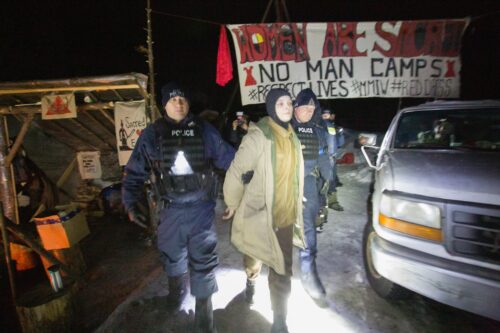
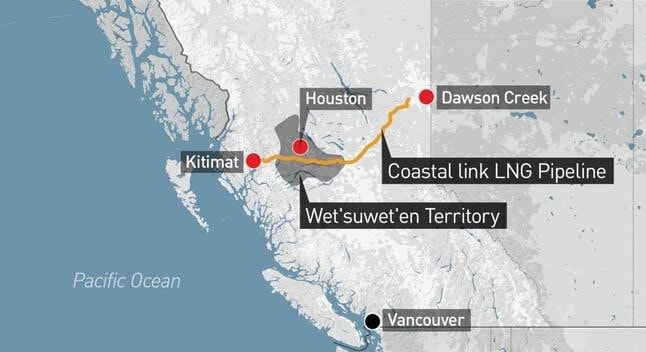
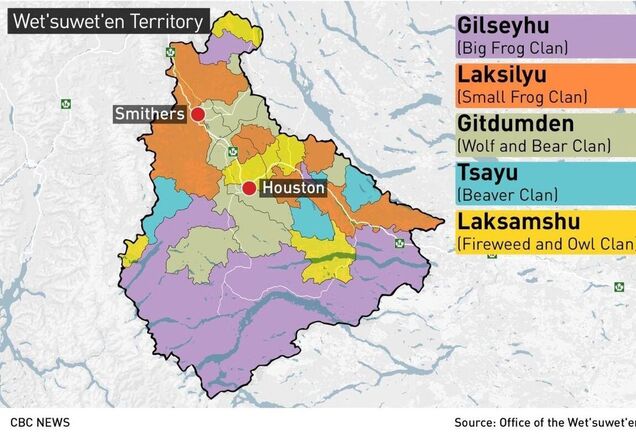
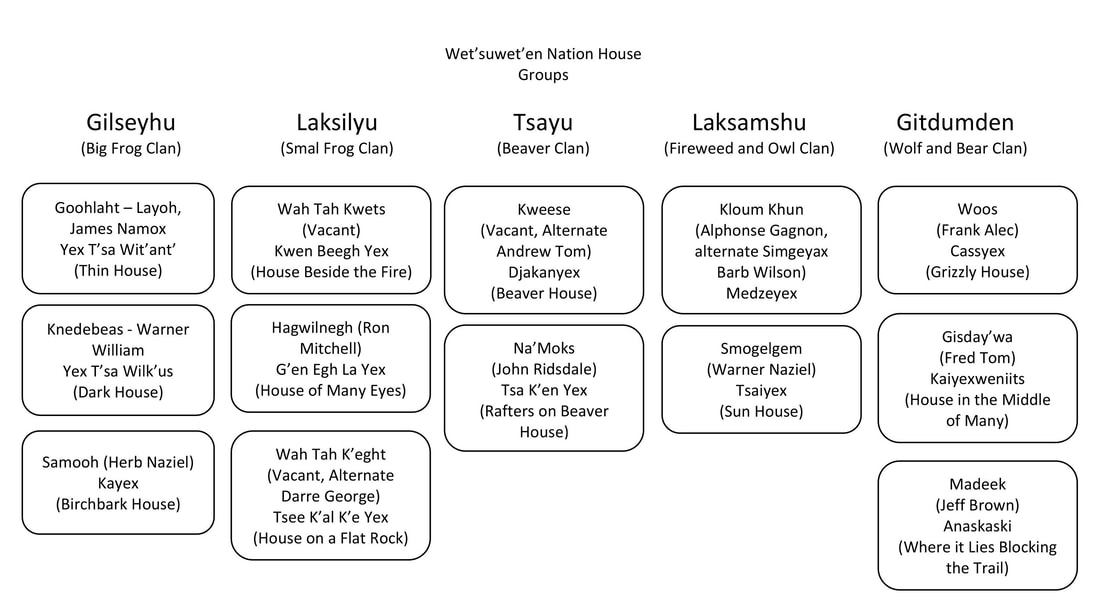
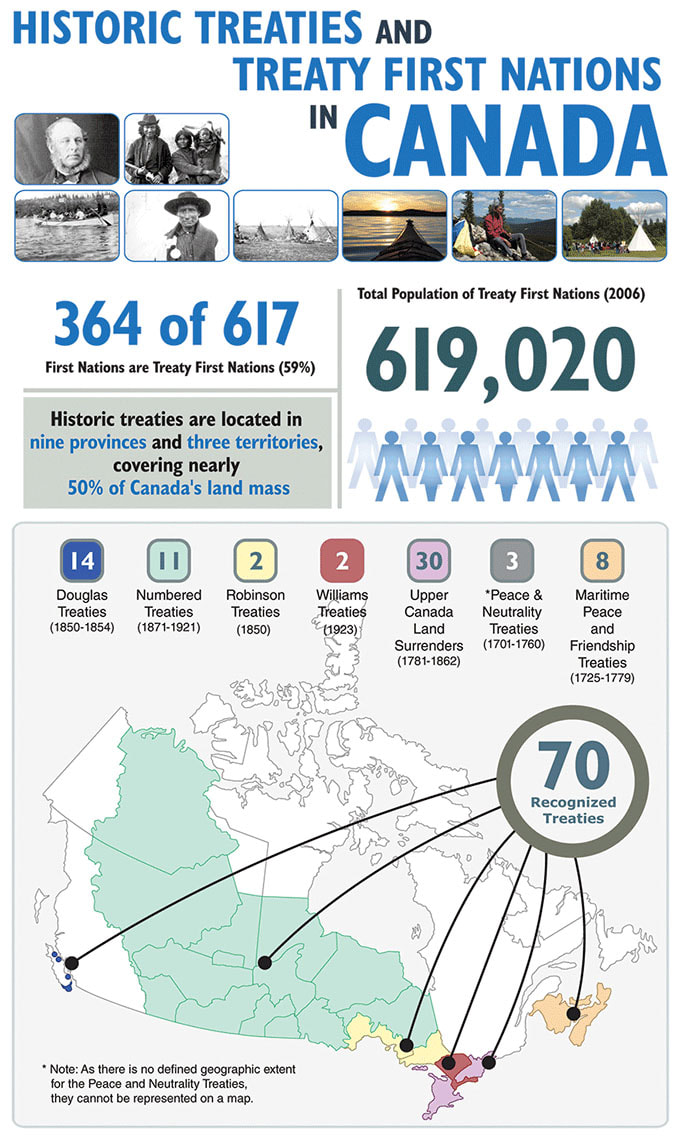
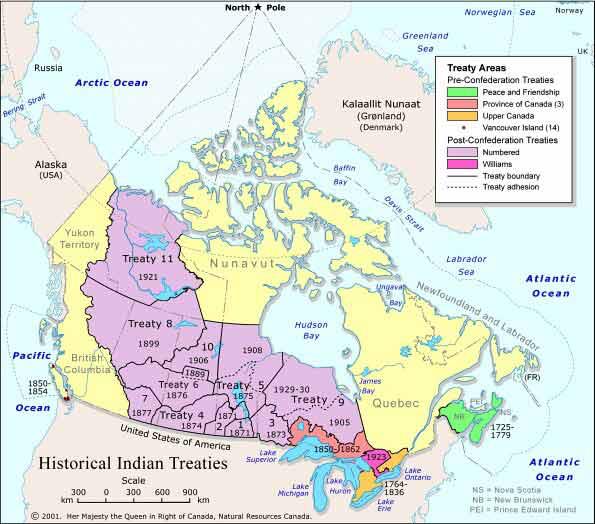
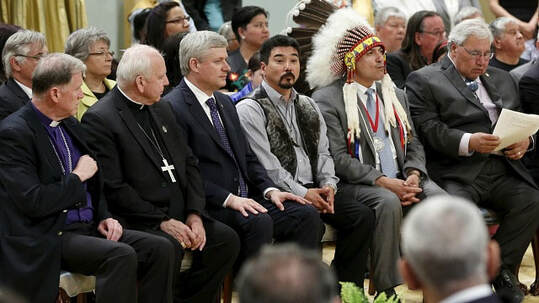
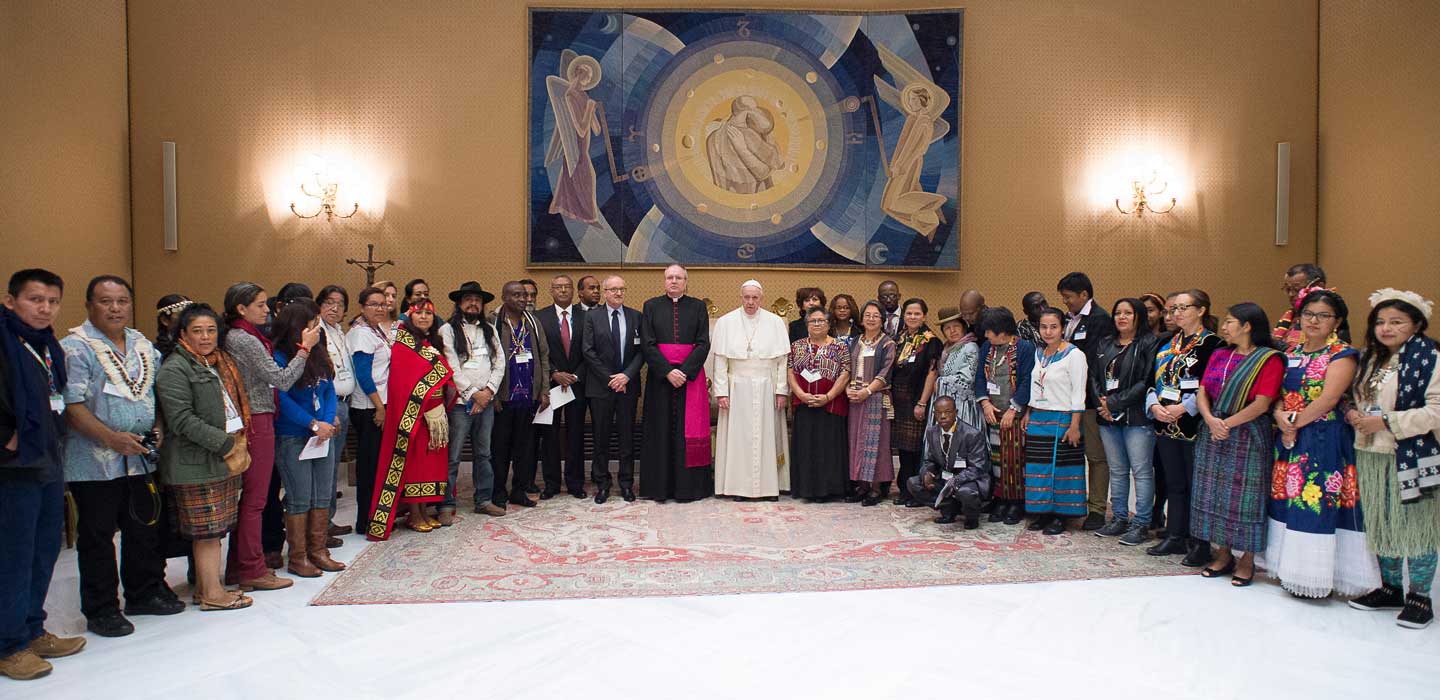
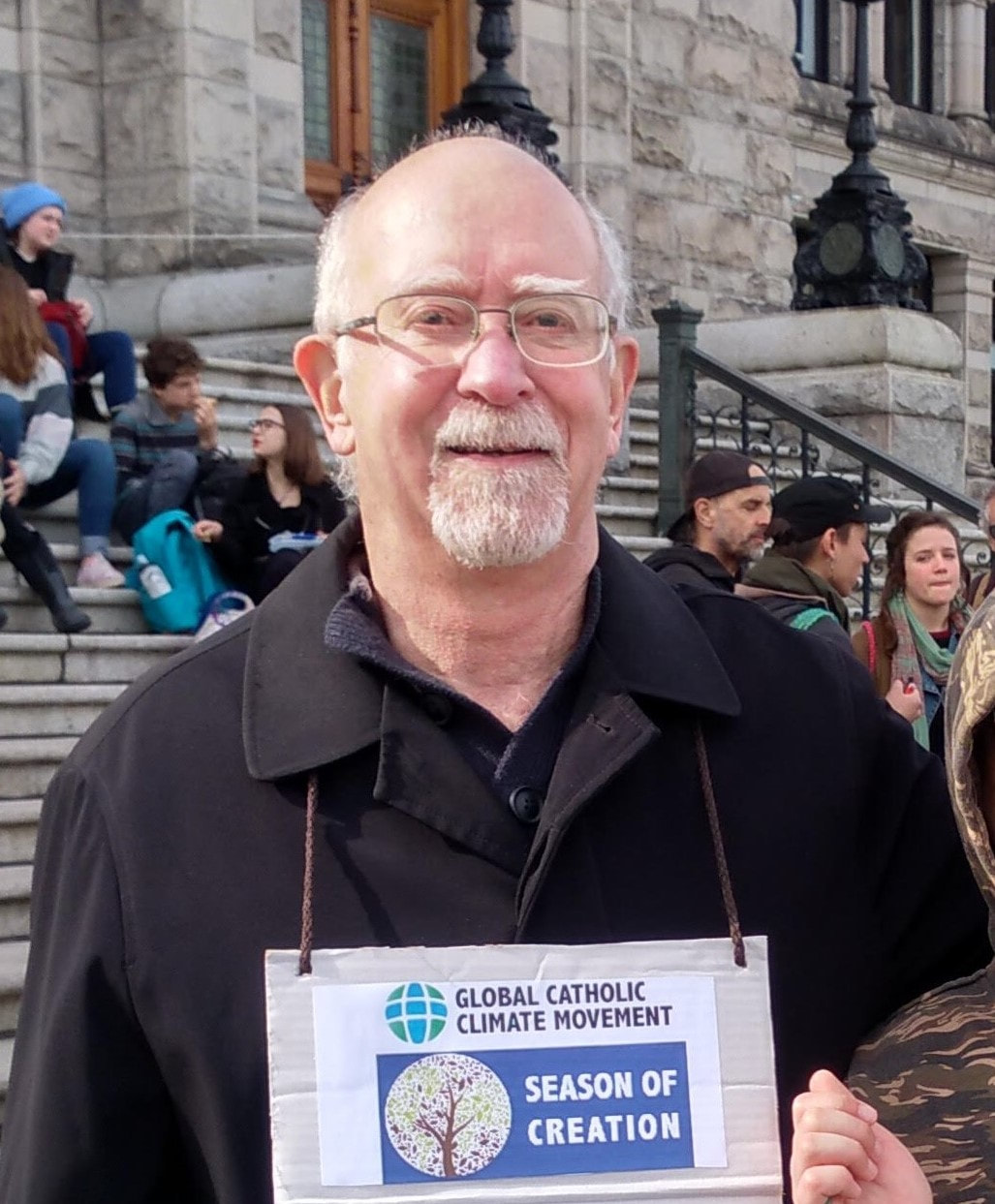

 RSS Feed
RSS Feed